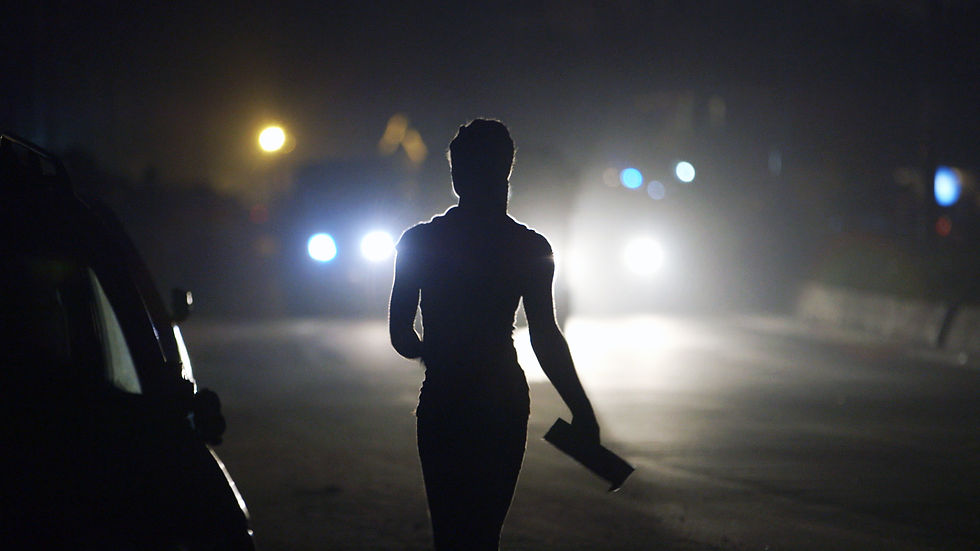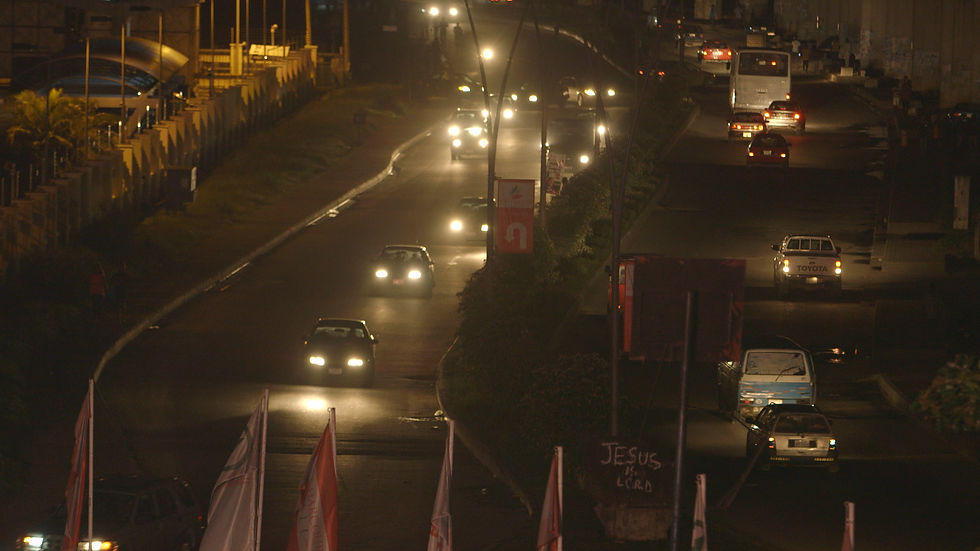
THE FILM
Amid the tangled wires of Nigeria’s
energy crisis, hope flickers.
Power means everything in Nigeria. Africa’s biggest oil producer is the world’s seventh most populous nation—Nigeria is literally bursting with promise. Yet less than 50 percent of the country’s 195 million citizens have access to electricity; those that do, receive a few hours per day at best.
In Port Harcourt, a major oil and gas hub in the Niger Delta, blackouts are the norm. They descend on the bustling city like soot from the regular gas flares, affecting daily life in ways that are disruptive and, often, dangerous. The chronic power problem and its complex causes fuel the daily news cycle, as chatter from pundits and politicians crackles through the airwaves.
Against this backdrop, Take Light takes us into the streets of director Shasha Nakhai’s hometown, and into the lives of people working on the frontlines of the grid. Their compelling and dramatic stories are woven together to create a gritty, beautiful, and urgent documentary that reveals a side of Nigerian society the world rarely gets to see.
No one knows the public’s frustration with the grid better than Martins, a devoted family man and electrical lineworker, who uses humour, tact, and a toolbelt to get through long days climbing utility poles and descending, more often than not, to angry mobs.
“I need to stay alive to work tomorrow.” An electrocution survivor from his previous job, Martins now works for a private power company disconnecting delinquent customers and snipping illegal electric hookups. Deborah, his tough but cheerful colleague, is a “marketer,” whose job is collecting on unpaid bills. Her daughter wonders why she doesn’t quit. “It just has to get better and not worse.”
Martins’ and Deborah’s frontline experiences unite with other stories from the grid: a control-room supervisor at Nigeria’s largest power plant explains a grid collapse with the analogy of 10 people being given one plate of rice; a YouTube duo provides a comedic reality check on their popular show “Two Angry Men”; a hospital engineer MacGyvers scavenged parts to revive neglected solar panels and power up the morgue refrigerator.
“We need to make a cultural shift,” Amara Nwankpa, a Nigerian communications technologist, clean-energy activist, explains, laughing as the power flickers off. #LightUpNigeria, a massively successful social media campaign he was part of in 2009, gave a “certain new power” to the average Nigerian—a context and outlet for expression.
“Development is a marathon, not a sprint,” Amara says. “You learn to celebrate your small victories.”

DIRECTOR'S NOTES
TORONTO - Dec. 19, 2017
Port Harcourt is the source of my fondest childhood memories. Today, however, the city is much different than what I remember. Perfectly manicured green hedges have turned to black dust—the fallout zone of a fossil-fuel economy. Yet here, at the end of the world, shards of light pierce through the grey clouds.
Take Light is a film about Nigeria’s energy crisis, with my hometown as the backdrop. It’s about a crisis of electrical energy, but also about other kinds of power struggles - the tensions between people, between past and present, between governments and colonial powers—and about the transformation of it all into a seething, powerful force, and the release of that energy as lightning bolts raining down on the earth, raised voices, and even violence.
With Take Light, I want to show the urgency and challenges of transitioning to greener and more egalitarian economies. But, ultimately, this is a film about the power of hope. It is about keeping the candle lit in times of darkness and despair, about fighting to remain a good person when corruption is the status quo, and harnessing the power of humour and religion to make it through each day.
- Shasha Nakhai
For more in-depth Director's Notes and Production Diaries, please contact us.

PRODUCER'S NOTES
TORONTO - December 2017
To be posted.